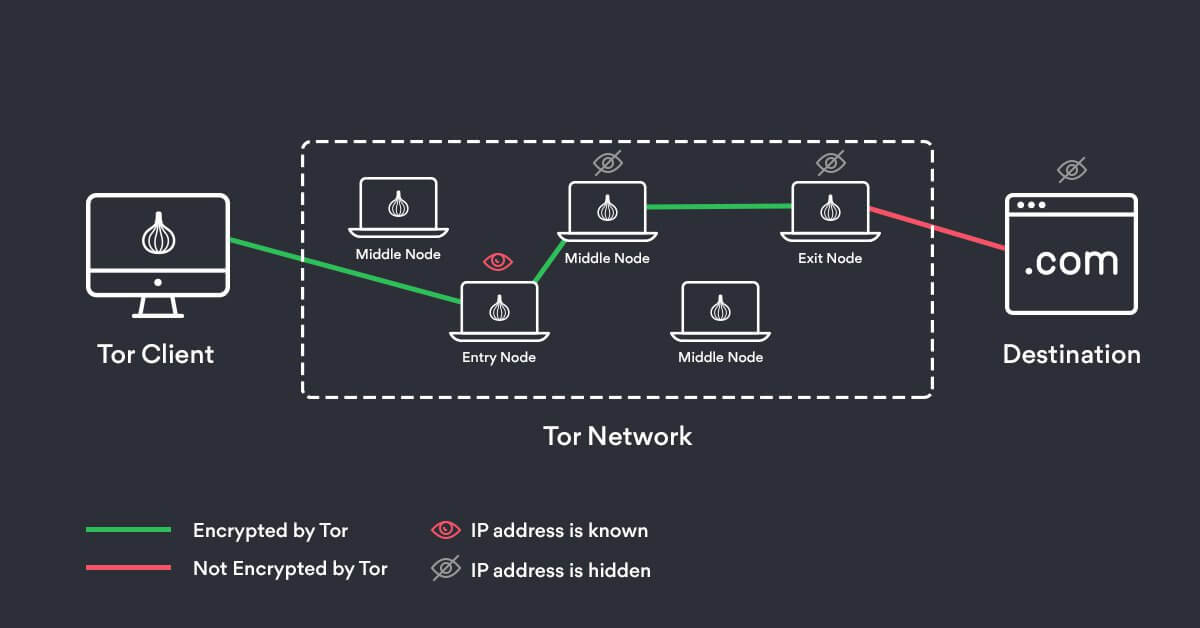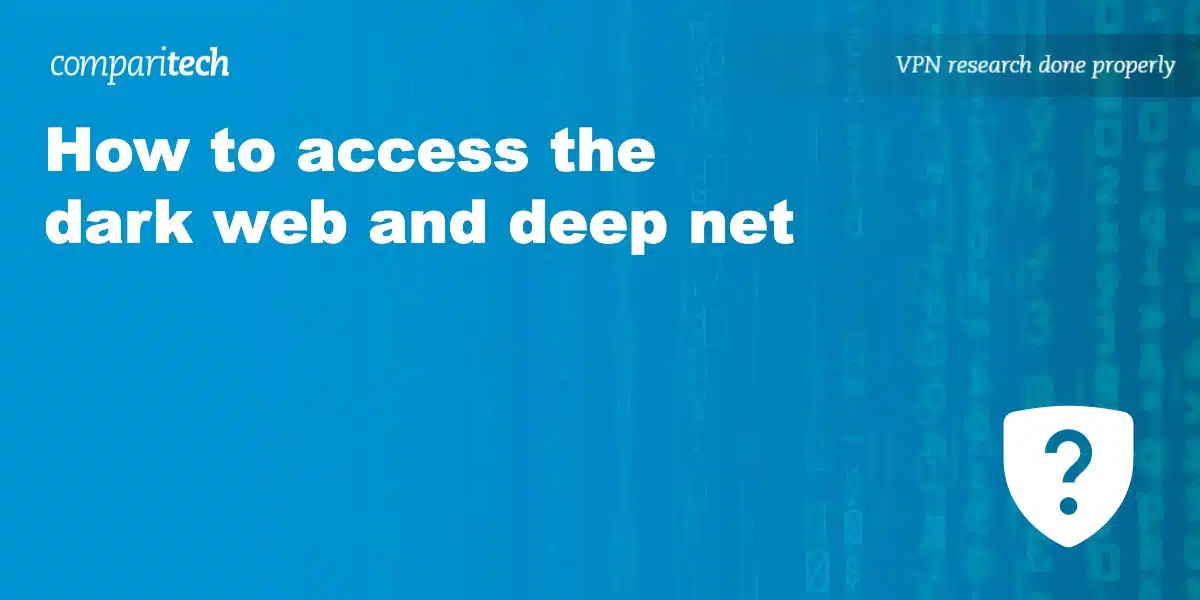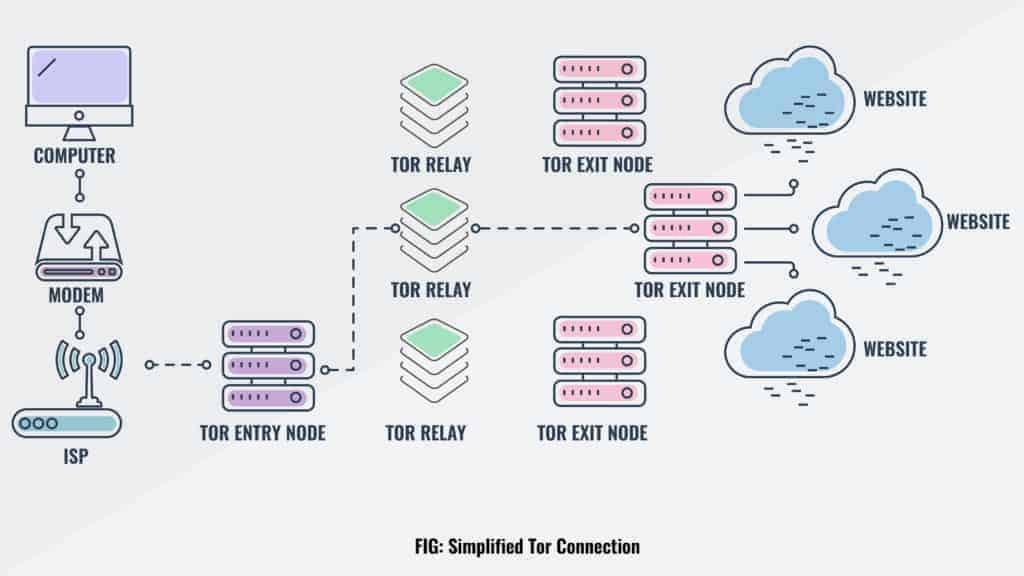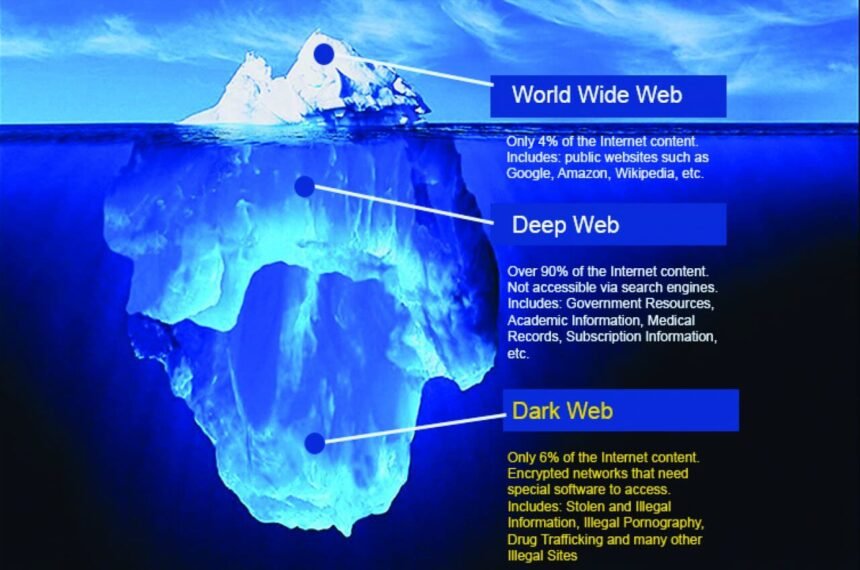To access the Dark Web, download the TOR browser and connect to hidden sites that can’t be found through regular web browsers. The Dark Web is a part of the internet that requires specialized tools like TOR to navigate and access.
It is important to note that using TOR or visiting the Dark Web itself is not illegal, but engaging in illegal activities, such as accessing child abuse images or selling illegal items, is against the law.

Credit: heimdalsecurity.com
Understanding The Dark Web
Understanding the Dark Web and how to access it can be a daunting task. However, with the use of an anonymizing browser like Tor, you can explore hidden sites and navigate the dark web securely. Stay informed about its uses and stay within legal boundaries to ensure a safe experience.
Difference Between Surface Web, Deep Web, And Dark Web
The internet can be divided into three main layers: the Surface Web, the Deep Web, and the Dark Web. The Surface Web is the part of the internet that can be accessed and indexed by search engines like Google. It includes websites and webpages that are publicly available. The Deep Web, on the other hand, refers to the portion of the internet that is not indexed by search engines and can’t be accessed through traditional means. This includes private databases, subscription sites, and other hidden content. Lastly, we have the Dark Web, which is a small part of the Deep Web that is intentionally hidden and accessible only through anonymous networks like Tor.
How The Dark Web Works
The Dark Web operates on an overlay network known as Tor (The Onion Router). Tor ensures the anonymity of users by encrypting and redirecting their internet traffic through a series of relays, making it extremely difficult to trace. This network is designed to protect the privacy and identity of users as they access the Dark Web. Essentially, when you access the Dark Web, your connection is bounced between multiple computers around the world, making it nearly impossible for anyone to track your activity back to your physical location.
Types Of Content On The Dark Web
The Dark Web hosts a variety of content, some of which is legal and others that are illegal and highly controversial. It’s important to note that not everything on the Dark Web is inherently malicious or criminal, although it does have a reputation for being a hub of illegal activities. On the Dark Web, you can find websites related to hacking, drug trafficking, counterfeit documents, and even illegal weapons. However, it’s also home to whistleblowing platforms, anonymous communication channels, and forums dedicated to privacy and secure communication. It’s a complex and often misunderstood part of the internet that serves multiple purposes for different users.

Credit: www.comparitech.com
Accessing The Dark Web Safely
Learn how to access the dark web safely with our step-by-step guide. By using an anonymizing browser like Tor and following best practices, you can explore the dark web without compromising your online security.
Using Tor Browser
The Tor Browser is the most popular and widely used tool for accessing the dark web safely. It is a specialized web browser that allows users to browse the internet anonymously, protecting their privacy and masking their IP address.
Setting Up Tor Browser
Setting up Tor Browser is a straightforward process. You can download the browser from the official Tor Project website, torproject.org. Once downloaded, you simply install the browser on your device and launch it.
Upon launching the browser, you’ll be connected to the Tor network. This network routes your internet traffic through a series of encrypted connections, making it difficult for anyone to trace your online activities back to you.
Precautions And Best Practices For Safe Browsing
While Tor Browser provides a layer of anonymity, it’s essential to follow precautions and best practices to ensure safe browsing on the dark web. Consider the following:
- Do not share personal information: Avoid providing any personal or identifiable information while browsing the dark web. This includes your real name, address, phone number, or any other sensitive data.
- Be cautious of links: Exercise caution when clicking on links within the dark web. Always verify the credibility of the website before accessing it, as malicious links can lead to harmful content or scams.
- Avoid downloading unknown files: Downloading files from unfamiliar sources can put your device at risk. Stick to trusted websites and only download files from reputable sources.
- Use strong and unique passwords: Ensure you use strong and unique passwords for any accounts you create on the dark web. Using a password manager can help you generate and remember complex passwords.
- Keep your software updated: Regularly update your operating system, browser, and security software to protect against potential vulnerabilities and exploits.
By adhering to these precautions and best practices, you can enhance your safety while accessing the dark web. It’s important to approach the dark web with caution and always prioritize your online security.
Exploring The Dark Web
When it comes to the internet, most of us are familiar with the surface web, which is easily accessible through search engines like Google. However, there is another side to the internet known as the dark web, which remains hidden and inaccessible to regular browsers. Exploring the dark web requires special tools and knowledge, making it a fascinating yet mysterious realm for those curious enough to venture into its depths.
Common Dark Web Websites And Services
When accessing the dark web, you’ll come across various websites and services that are not available on the surface web. These websites often deal with illegal activities, such as the sale of drugs, weapons, stolen data, and other illicit goods. It’s essential to note that engaging in illegal activities on the dark web is against the law and can have severe consequences.
| Common Dark Web Websites and Services |
|---|
| Illegal drugs |
| Weapons |
| Stolen data |
| Counterfeit goods |
Navigating The Dark Web
Navigating the dark web can be a challenge for inexperienced users. Unlike the surface web, the dark web does not have traditional search engines to help you find what you’re looking for. Instead, you need to rely on specialized search engines specifically designed to uncover hidden websites and services. The most common way to access the dark web is through the Tor browser, which provides anonymity by encrypting your web traffic and routing it through a network of servers.
Understanding Onion Urls
Onion URLs are unique web addresses used in the dark web. These URLs end with the “.onion” domain extension and are highly difficult to trace. Anonymity is a crucial aspect of the dark web, and onion URLs help ensure that users can access websites without revealing their identities. It’s important to exercise caution when browsing the dark web, as malicious websites can pose significant risks.
In conclusion, exploring the dark web can be an eye-opening experience, but it’s important to remember that there are legal and ethical boundaries that should not be crossed. Understanding the common websites and services found on the dark web, grasping the navigation techniques, and being aware of the unique onion URLs can help you navigate this hidden realm with caution.

Credit: www.comparitech.com
Legal And Ethical Considerations
When it comes to accessing the dark web, it’s important to be aware of the legal and ethical considerations involved. While using Tor or visiting the dark web itself is not illegal, it is crucial to understand that engaging in illegal activities anonymously on the dark web, such as accessing child abuse images, promoting terrorism, or trading illegal items, is against the law. It’s essential to use the dark web responsibly and within legal boundaries.
Is Accessing The Dark Web Legal?
Using Tor or visiting the dark web is not considered illegal. The dark web consists of hidden sites that cannot be accessed through conventional web browsers. To access these sites, you need to use an anonymizing browser like Tor. However, it is crucial to remember that engaging in illegal activities on the dark web is against the law. It is illegal to access and distribute child abuse imagery, promote terrorism, or trade illegal items like weapons.
Risks And Dangers Of The Dark Web
Although accessing the dark web itself may not be illegal, it is important to understand the risks and dangers associated with it. The dark web is notorious for being a hub of illegal activities, including drug trafficking, identity theft, and hacking services. Users on the dark web often operate under pseudonyms and carry out illicit transactions, making it a high-risk environment for personal safety and cybersecurity.
When accessing the dark web, there is a higher chance of encountering scams, malware, and other malicious entities. It’s crucial to be cautious and aware of the risks involved, ensuring the use of appropriate security measures such as a reliable virtual private network (VPN) and strong antivirus software to protect your devices and personal information.
Ethical Use And Responsible Exploration
While the dark web has a reputation for illicit activities, it is possible to explore it ethically and responsibly. Legal and ethical exploration of the dark web can involve gaining a deeper understanding of online privacy, cybersecurity threats, and criminal activity. Researchers, cybersecurity professionals, and law enforcement agencies may use the dark web to gain insights into emerging trends and new threats.
When exploring the dark web for legitimate purposes, it is important to exercise caution and adhere to strict ethical guidelines. Respect the privacy and anonymity of other users, avoid participating in illegal activities, and report any unlawful or harmful content to the appropriate authorities.
Remember, responsible exploration of the dark web means using knowledge gained for the greater good, such as improving cybersecurity measures or understanding emerging criminal phenomena. By approaching the dark web ethically, we can contribute towards a safer online environment.
Frequently Asked Questions For How To Access The Dark Web
Is It Illegal To Check The Dark Web?
Checking the dark web itself is not illegal, but engaging in illegal activities on the dark web is against the law. Examples include accessing child abuse images, promoting terrorism, and selling illegal items. Be aware of legal boundaries when browsing the dark web.
How Do I Know If I Am On The Dark Web?
To know if you’re on the dark web, you can use identity theft protection services like IdentityIQ. Enter the information you want to scan for, and they’ll check if it’s on the dark web. It’s important to note that using Tor or visiting the dark web is not illegal, but engaging in illegal activities like accessing child abuse images or promoting terrorism is.
How Hard Is It To Access The Dark Web?
Accessing the dark web requires using the Tor browser and specific search engines. It’s not difficult, but it’s important to remember that engaging in illegal activities on the dark web is against the law.
Can I Find Myself On The Dark Web?
Yes, you can find yourself on the dark web. Use people-search sites like Spokeo, Intelius, or Pipl for a basic profile. It’s important to protect your online reputation and be aware of what information is out there.
Conclusion
Accessing the dark web may seem intimidating, but it is not inherently illegal. However, it is important to use it responsibly and be aware of the potential risks. By using the Tor browser and following proper precautions, you can explore this hidden part of the internet.
Remember, accessing illegal content or engaging in illegal activities is against the law. Stay safe and informed while navigating the dark web.







